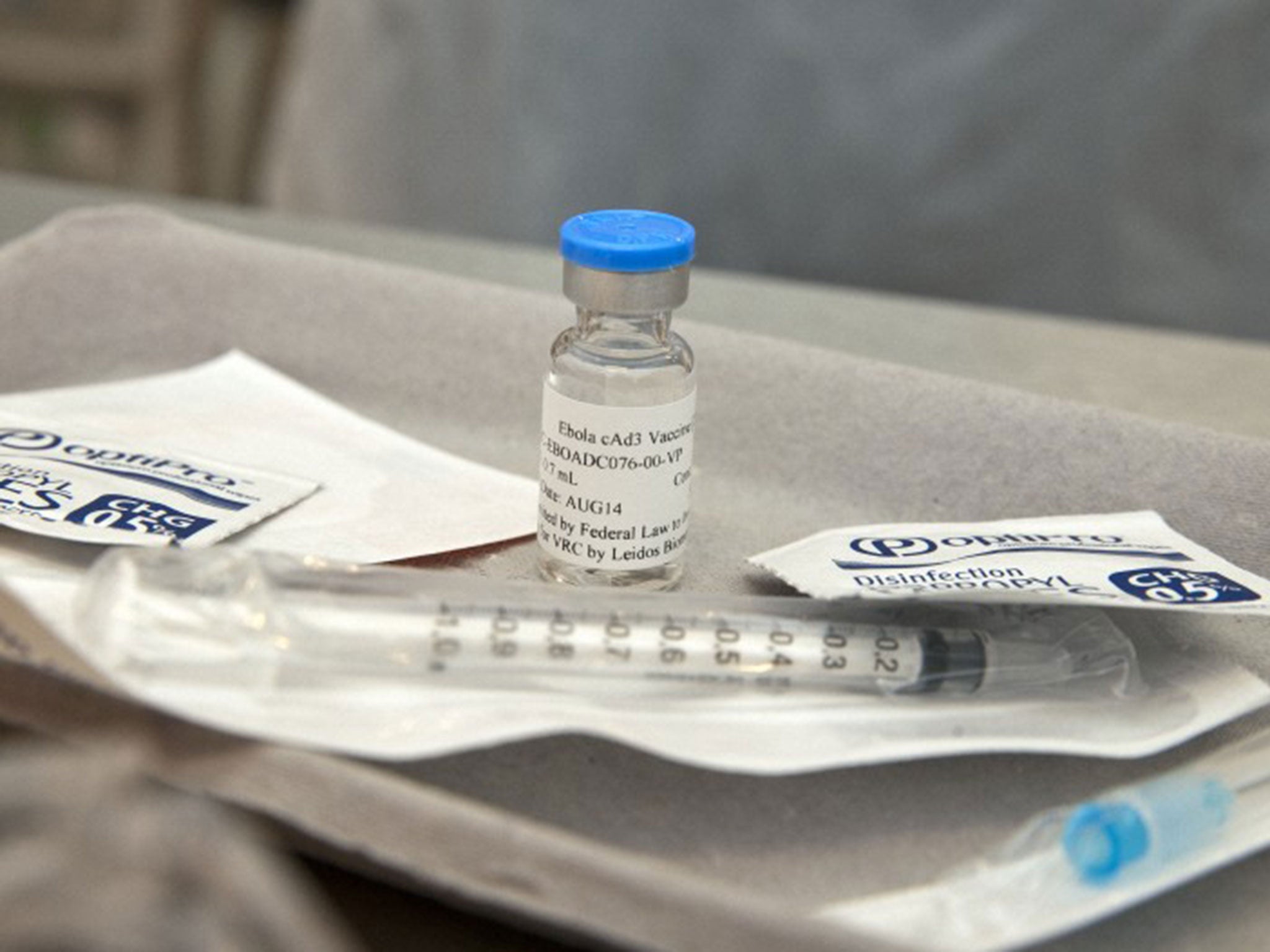Ebola symptoms: What are they and what should you do if you think you have them?
Vaccine is currently on trial although it is not available to the public yet

Your support helps us to tell the story
From reproductive rights to climate change to Big Tech, The Independent is on the ground when the story is developing. Whether it's investigating the financials of Elon Musk's pro-Trump PAC or producing our latest documentary, 'The A Word', which shines a light on the American women fighting for reproductive rights, we know how important it is to parse out the facts from the messaging.
At such a critical moment in US history, we need reporters on the ground. Your donation allows us to keep sending journalists to speak to both sides of the story.
The Independent is trusted by Americans across the entire political spectrum. And unlike many other quality news outlets, we choose not to lock Americans out of our reporting and analysis with paywalls. We believe quality journalism should be available to everyone, paid for by those who can afford it.
Your support makes all the difference.The first case of Ebola to be diagnosed on British soil was announced on Monday, after a health worker in Glasgow was confirmed to have contracted the virus.
Since an Ebola outbreak began in December 2013 in the West African country of Guinea, there have been a total of 19,500 cases in eight countries, mainly Guinea, Liberia and Sierra Leone – and 7,600 reported deaths, according to the World Health Organisation.
It it is crucial for those who have travelled there to seek urgent care if they feel recognised symptoms. The virus can be fatal in 50-90 per cent of cases.
Public Health England spokesperson Georgina Fletcher said:"It is especially important humanitarian aid workers returning home from West Africa to understand the risk of exposure to the virus."
What are the symptoms?
Fever, headache, joint and muscle pain, sore throat and intense muscle weakness within 21 days after being infected, with symptoms usually occurring within 5-7 days.
What should you do if you think you have Ebola in the UK?
If symptoms are felt within 21 days of coming back from Guinea, Liberia or Sierra Leone, sufferers are advised to stay at home and telephone 111 or 999 to explain that they have visited West Africa.
It will then be advised to be seen at a hospital if necessary to determine the exact cause of the illness. There are other illnesses that are much more common than Ebola (such as flu, typhoid fever and malaria) that have similar symptoms in the early stages, so official medical assessment is very important to ensure the right diagnosis and treatment.
How can you catch Ebola?
It can only be caught by direct contact with bodily fluids and by handling soiled clothing or unsterilised medical equipment that was in contact with an infected person. It is not possible to get infected through social contact or using the same transport or room as a carrier.
How can it be prevented?
By not handling dead animals or their raw meat, not eating ‘bushmeat’ (wild animals not fit for human consumption), avoiding contact with infected people, avoiding sexual contact with people in areas with cases of Ebola and regularly cleaning hands with soap and water, or with alcohol gel.
How is it diagnosed?
A specialist infection clinician will make judgements on what the most likely diagnosis may be based on the patient’s history. If Ebola is considered a cause, blood samples can be sent for laboratory testing and a diagnosis can be made quickly.
How is it treated?
Patients need to be placed in isolated intensive care and the body will need to be kept hydrated, and sometimes an intravenous drip will need to be administered. Blood pressure and oxygen levels need to be maintained with the body organs supported while the body fights the disease.
Join our commenting forum
Join thought-provoking conversations, follow other Independent readers and see their replies
Comments